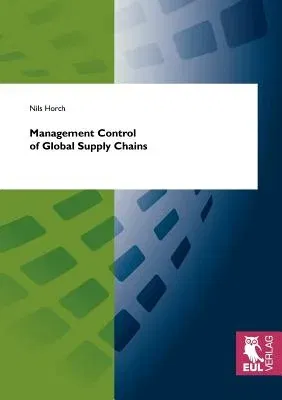Within global and rapidly changing environments, cooperation and
networking offer possibilities for sharing costs and risks, as well as
keeping up with constantly renewed information from outside the firms'
boundaries. In line with this, an effective management control of supply
chain processes seems to be relevant to compete against other supply
chains and to get the required information. In this context, an
implementation of a management control institution for inter-firm
relations, like a supply chain management control (SCMC), that provides
relevant qualitative and quantitative data to manage supply chains
reflects an important issue. However, a comprehensive approach with
regard to the management control of the entire supply chain and how it
can be fulfilled has received scant attention in prior research. The aim
of this thesis is therefore to analyze management control systems in
global supply chains by means of a mixed methods design with special
regard to functional, institutional and instrumental issues. In this
context, qualitative data are combined with theoretical insights to
develop an empirical model which is tested by means of a quantitative
study. Following this, insights into management control aspects,
organization of the supply chain management control, management control
mechanisms, and the integration of suppliers are provided.


